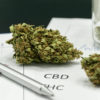As Colorado cannabis cultivators continue to crank out crops with extremely high THC, some are raising concerns that Colorado cannabis is too strong. In addition to marijuana flowers, the legal cannabis industry has rapidly expanded the diversity of their products.
Among the most popular are substances called cannabis “extracts.” These extracts are made by isolating the cannabinoids in the plant and extracting them.
Colorado cannabis extracts are basically pure THC, with cannabinoid content reaching above 50%, and sometimes much higher.
Headlines have been awash with stories of users whose lives have been “shattered” by super-high THC concentrates.
That’s why those behind the proposals to limit THC say they’re smart, cautious moves. Critics, on the other hand, say the proposed regulations would hurt the Colorado cannabis industry.
The proposed ballot initiative would create an amendment to a bill in the state House.
The amendment would cap the THC potency of recreational Colorado cannabis and marijuana products at a percentage below most of those products’ current averages.
The average potency of Colorado pot products is already higher.
Colorado cannabis flowers typically offer 17.1 percent THC.
Marijuana extracts weigh in at 62.1 percent. These numbers are according to a state study.
Supporters of the legislation, introduced by Republican state Rep. Kathleen Conti, say they’re being cautious until more research has been done and protecting the brain development of adolescents.
Opponents, however, argue that the measures are unreasonable and could squash some of the legal Colorado cannabis industry’s most popular categories.
“All the studies that have been done on THC levels have been done on THC levels between 2 and 8 percent,” said Conti, whose district encompasses parts of Greenwood Village and Littleton.
“Most of the marijuana coming in now, the flowers are being rated at a THC count of about 17 percent on average, so this is dramatically over, and we really don’t know that we’ve gotten the true feel on the health risks associated with that marijuana.”
Since most of the high-THC concentrates and extracts are used as the base for Colorado cannabis edibles, there is also concern about the heightened risks toward children, who may be attracted to the Colorado cannabis-infused sweets.
Marijuana industry compliance professional Mark Slaugh considers the proposed THC limit “unconstitutional.”
He said such a cap would send patients and recreational users to the gray and black markets.
“This bill threatens to wipe out most infused product manufacturers, and its language is unclear as to what to do with edibles,” said Slaugh, who is also the executive director of the Colorado Cannabis Business Alliance.



















